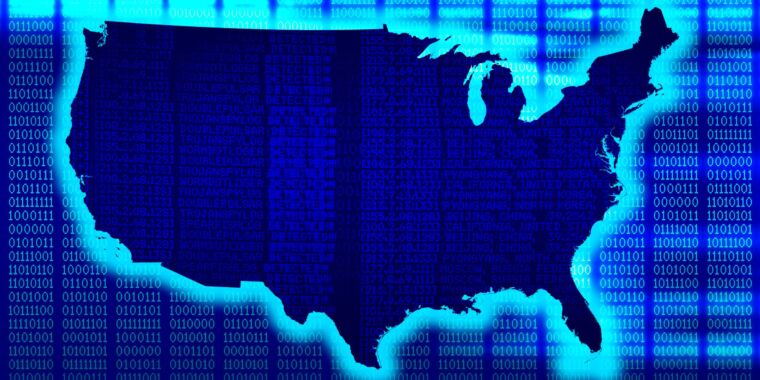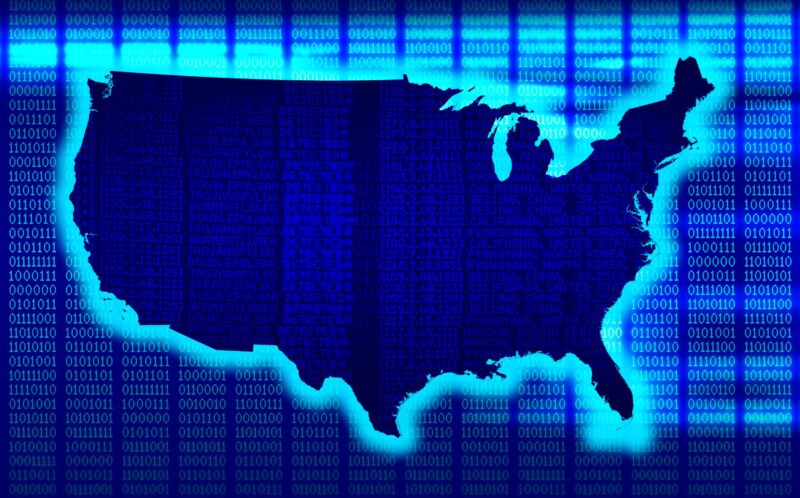You are using an out of date browser. It may not display this or other websites correctly.
You should upgrade or use an alternative browser.
You should upgrade or use an alternative browser.
Republicans Trying To Kill Program That Brings Affordable Broadband To The Poor
- Thread starter bnew
- Start date
More options
Who Replied?I did a motorcycle trip a couple years ago in remote rural areas. I was seeing fiber markers in the middle of damned nowhere in some of these red states. I’m talking places I was riding 5-10 minutes without seeing a house or a car In the woods. I think I made a thread about how Republicans (the voters I mean) hate democrats but love Democratic policies.
Bleed The Freak
Superstar
I did a motorcycle trip a couple years ago in remote rural areas. I was seeing fiber markers in the middle of damned nowhere in some of these red states. I’m talking places I was riding 5-10 minutes without seeing a house or a car In the woods. I think I made a thread about how Republicans (the voters I mean) hate democrats but love Democratic policies.
Kentucky and Obamacare is that in a nutshell

Republicans angry that ISPs receiving US grants must offer low-cost plans
Law requires grantees to offer low-cost plans. GOP calls it "rate regulation."
Republicans angry that ISPs receiving US grants must offer low-cost plans
Law requires grantees to offer low-cost plans. GOP calls it "rate regulation."
JON BRODKIN - 7/10/2024, 4:19 PM
Enlarge
Getty Images | Matt Anderson Photography
148
Republican lawmakers are fighting a Biden administration attempt to bring cheap broadband service to low-income people, claiming it is an illegal form of rate regulation. GOP leaders of the House Energy and Commerce Committee announced an investigation into the National Telecommunications and Information Administration (NTIA), which is administering the $42.45 billion Broadband Equity, Access, and Deployment (BEAD) program that was approved by Congress in November 2021.
"States have reported that the NTIA is directing them to set rates and conditioning approval of initial proposals on doing so. This undoubtedly constitutes rate regulation by the NTIA," states a letter to the NTIA from Committee Chair Cathy McMorris Rodgers (R-Wash.), Subcommittee on Communications and Technology Chair Bob Latta (R-Ohio), and Subcommittee on Oversight and Investigations Chair Morgan Griffith (R-Va.).
As evidence, the letter points to a statement by Virginia that described feedback received from the NTIA. The federal agency told Virginia that "the low-cost option must be established in the Initial proposal as an exact price or formula."
The Republicans said anecdotal evidence suggests "the NTIA may be evaluating initial proposals counter to Congressional intent and in violation of the law." They asked the agency for all communications about the grants between NTIA officials and state broadband offices.
The US law that ordered NTIA to distribute the money requires that Internet providers receiving federal funds offer at least one "low-cost broadband service option for eligible subscribers." But the law also says the NTIA may not "regulate the rates charged for broadband service."
We’re following the law, agency says
An NTIA spokesperson told Ars that the agency is working to implement the law's requirement that grant recipients offer an affordable service tier to qualifying low-income households. "We've received the letter and will respond through the appropriate channels. NTIA is working to implement BEAD in a manner that is faithful to the statute," the agency said.NTIA Administrator Alan Davidson tried to deflect Republican criticism of the low-cost requirements at a hearing in May. He said that requiring a low-cost option, as the law demands, is not the same as regulating broadband rates.
"The statute requires that there be a low-cost service option," Davidson told Latta at the hearing, according to Broadband Breakfast. "We do not believe the states are regulating rates here. We believe that this is a condition to get a federal grant. Nobody's requiring a service provider to follow these rates, people do not have to participate in the program."
The NTIA needs to evaluate specific proposals to determine whether plans are low-cost, he said. "You have to be able to understand what is affordable," Davidson was quoted as saying. "Every state has to submit a low-cost option that we can understand is affordable. When states do that, we will approve their plans."
GOP demands more transparency
Republicans were not satisfied with Davidson's answers. Virginia "publicly posted the NTIA's feedback that the agency would not approve their initial proposal without 'an exact price or formula' for the state's low-cost option," Republicans wrote to Davidson. "Without visibility into the approval process, Congress is unable to determine how widespread this practice is. When asked about this at oversight hearings, your responses have failed to provide clarity."Davidson told lawmakers that the NTIA has "endeavored to be transparent." But in the law that created BEAD, Congress exempted the NTIA from Freedom of Information Act (FOIA) requirements for records related to administration of the program.
"We are unaware of a single federal agency appropriated with even half that amount bestowed with any such FOIA exemption," the letter sent yesterday by Republicans said. "Given the unprecedent[ed] exemption from transparency coupled with a record amount in funding, this Committee has a responsibility to ensure that both initial and final proposals submitted by state entities are properly evaluated and consistent with the intent of Congress when establishing the program."
Democrat slams “ridiculous attacks”
Energy and Commerce Committee member Debbie Dingell (D-Mich.) criticized Republicans for what she called "ridiculous attacks" on the NTIA's implementation of the BEAD program."These attacks fail to recognize that this is the largest investment in broadband deployment in our nation's history and we want to make sure we get it right," Dingell said at a hearing yesterday. "I would think we would all agree with that. These attacks are only going to hurt communities throughout the entire nation that have either been unserved or underserved for too long."
In addition to criticism of low-cost plans, Republicans have complained that NTIA hasn't distributed money to states more quickly. The letter from GOP lawmakers to the NTIA alleged that the agency "has stalled its approval for the vast majority of the 56 states and territories, undermining their ability to utilize the funding to invest in broadband expansion as Congress intended."
The NTIA announced how much broadband-deployment funding each US state and territory will be eligible to receive from the grant program in June 2023. But in order to get the money and start distributing it to ISPs, states must obtain approval for their plans from the NTIA.
All states and territories submitted their initial proposals by December 2023. The NTIA has so far approved the initial proposals of 14 states, the District of Columbia, and Puerto Rico.
"One year from Initial Proposal approval, states must submit a Final Proposal that details, among other things, the outcome of the subgrantee selection process and how the state will ensure universal coverage," the NTIA says.

16 U.S. States Still Ban Community-Owned Broadband Networks Because AT&T and Comcast Told Them To
For years we’ve noted how U.S. broadband is expansive, patchy, and slow thanks to mindless consolidation, regulatory capture, regional monopolization, and limited competition. That’…
 www.techdirt.com
www.techdirt.com
16 U.S. States Still Ban Community-Owned Broadband Networks Because AT&T and Comcast Told Them To
from the
Thu, Nov 7th 2024 05:34am - Karl Bode
For years we’ve noted how U.S. broadband is expansive, patchy, and slow thanks to mindless consolidation, regulatory capture, regional monopolization, and limited competition. That’s resulted in a growing number of pissed off towns, cities, cooperatives, and city-owned utilities building their own, locally-owned broadband networks in a bid for better, cheaper, faster broadband.
Regional giants like Comcast, Charter, or AT&T could have responded to this organic trend by offering better, cheaper, faster service. But ultimately they found it far cheaper to undermine these efforts via regulatory capture, congressional lobbying, lawsuits, protectionist state laws, and misleading disinformation.
Currently sixteen states have laws — usually ghost written by regional telecom monopolies — restrict or outright ban community broadband. Some of these laws are outright bans on community broadband, basically letting Comcast or AT&T veto your local infrastructure voting rights. Others erect elaborate, cumbersome restrictions on the financing and expansion of such networks and pretend that’s not a ban.
The good news: The Institute For Local Self Reliance (where I study and write about broadband access) notes that these sixteen laws are a notable reduction from the 21 state laws we had in 2020. What caused the change? The pandemic home education and telecommuting boom highlighted the essential nature of broadband (or more accurately, the expensive, sluggish, terrible nature of monopoly options).
As a result, several states voted to roll back the efforts and take a more serious look at community owned and operated broadband networks:
“In 2021, Arkansas and Washington passed legislation significantly rolling back legislative barriers on publicly owned broadband networks. In 2023, Colorado rolled back a law that required communities to hold a referendum vote to opt out of a state ban on municipal broadband. That law was repealed after over 120 communities across the state overwhelmingly voted to opt out of the state preemption law, fueled no doubt by the success of the municipal networks in Estes Park, Fort Collins, and Loveland. In May of 2024, Minnesota followed suit, rolling back its preemptions laws.”
There are numerous funding and deployment models when it comes to community broadband. Some municipalities build open access fiber networks themselves (see: Utah’s UTOPIA), allowing for numerous competitors. Others are built off the back of city-owned electric utilities (see: Chattanooga’s EPB). Some are fiber cooperatives (see the success had in North Dakota). Some are public private partnerships.
Data routinely shows these networks provide faster, better, cheaper service than regional cable and phone giants. Staffed and backed by locals, they tend to be more in tune with the needs of locals. They’re extremely unlikely to engage in predatory pricing, privacy, or net neutrality violations. You’ll usually enjoy local customer service. They incentivize regional monopolies to actually try.
There’s $42.5 billion in infrastructure bill subsidies that should start reaching the states early next year. A lot of this money will land in the laps of the usual regional monopolies. But a lot of it is going to wind up in the hands of local community-owned networks, which is a dramatic policy shift from years past. As a result, companies like Charter, AT&T, and Comcast have ramped up the use of fake consumer groups built specifically to mislead locals.
Community broadband isn’t some magic panacea. Like any other business model, it requires competent planning, intelligent financing, and stellar leadership. But it should be the democratic choice of a community whether to pursue such options. Not the decision of a Comcast executive living half a world away.
Filed Under: broadband, community broadband, fiber, high speed internet, lobbying, municipal, protectionism, state laws, telecom

